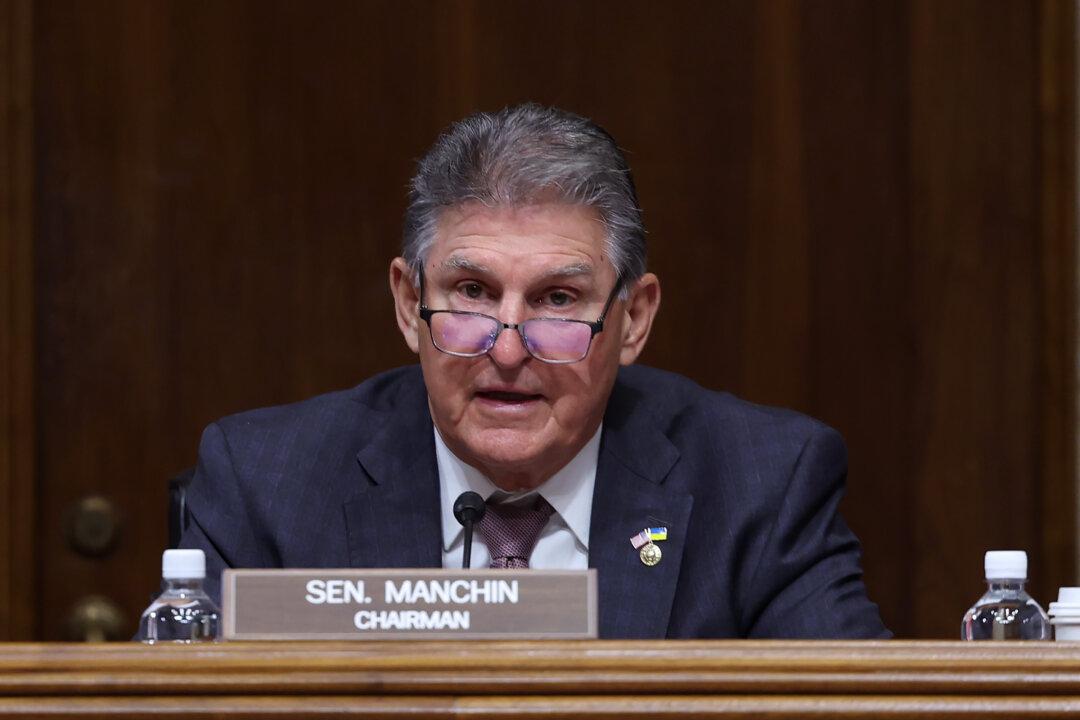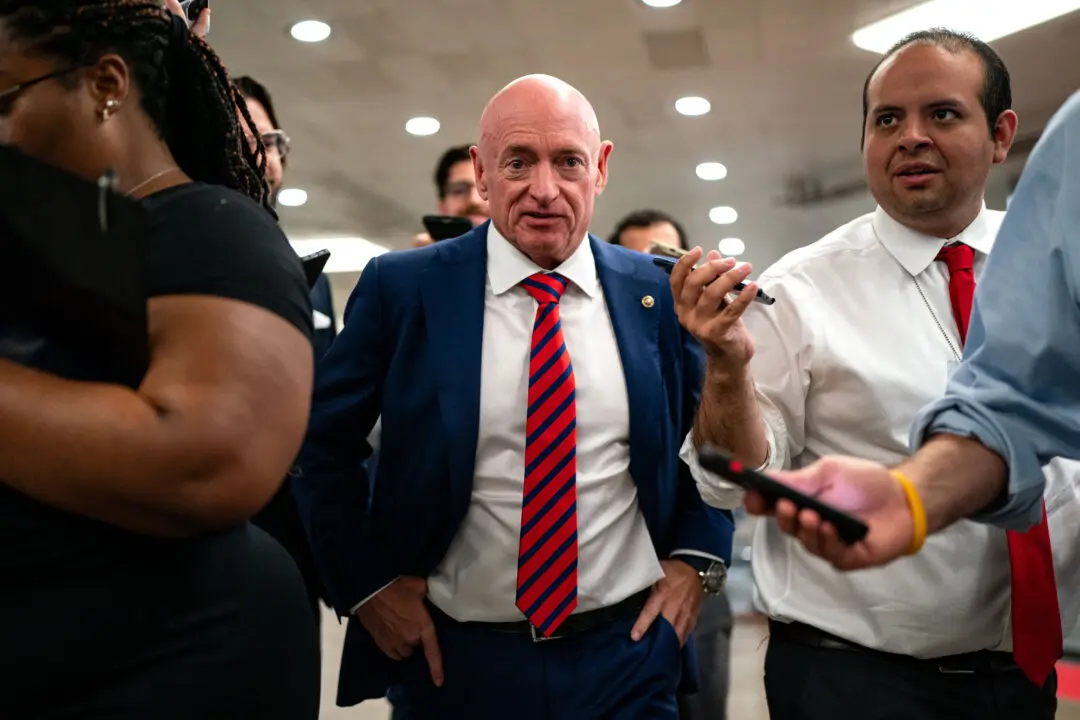A legal battle over the construction of a new natural gas pipeline in West Virginia has raised common ground between President Joe Biden’s administration, Sen. Joe Manchin (D-W.Va.), and a group of Republican lawmakers.
The deal to increase the U.S. debt limit last month included a provision to approve the construction of the Mountain Valley Pipeline, a natural gas project set to run between Virginia and West Virginia. An environmental group known as the Wilderness Society has challenged the pipeline’s construction, winning a July 11 order from the Fourth Circuit Court of Appeals that halts the pipeline’s construction for now.





